From the stone tools of our ancestors to the artificial intelligence shaping our future, technology has been humanity’s constant companion in our quest to control and transform our environment. But what exactly is technology? Is it simply the devices we hold in our hands, or something more profound—a reflection of our collective knowledge, ambitions, and values? As the Internet reshapes our cognition and AI systems become increasingly integrated into society, we find ourselves at a pivotal moment where understanding technology’s essence has never been more crucial.
The story of technology is the story of human evolution itself. When prehistoric humans first controlled fire, they changed not just their environment but their own biology—affecting brain development and enabling new forms of communication. Today, as we navigate the Information Age, we face similar transformative potential alongside unprecedented challenges. Is the Internet “making us stupid” by diminishing our attention spans, or democratizing knowledge in ways our ancestors could never imagine? Are AI systems enhancing our capabilities or threatening our autonomy and employment?
In this exploration, we’ll journey through technology’s definition and historical evolution, examine how the Internet is reshaping our minds, confront the realities of artificial intelligence in modern society, and consider technology’s broader implications. Along the way, we’ll encounter philosophical perspectives that help us make sense of our increasingly complex relationship with the tools we create—and that, in turn, are creating us. 🌐💡
Defining Technology
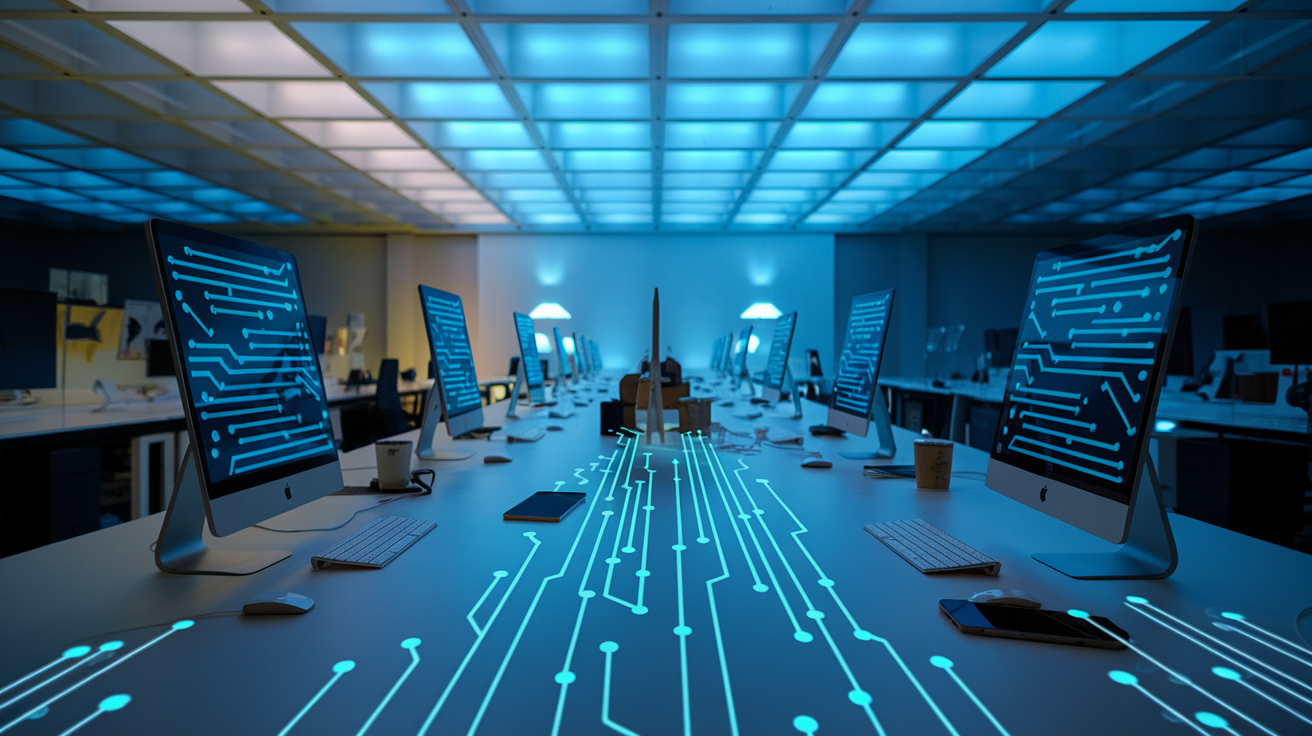
The Application of Scientific Knowledge
Technology isn’t just gadgets and gizmos—it’s the practical application of scientific knowledge. Think about it: when scientists discover something new about how the world works, tech folks ask, “What can we do with this?” That’s technology in a nutshell.
Take smartphones. They exist because we learned about electricity, developed microprocessors, and figured out wireless communication. Each scientific breakthrough opened doors to new possibilities.
But technology isn’t waiting around for science either. Sometimes it’s the reverse—engineers create something that works, and scientists later explain why. The Wright brothers flew before we fully understood aerodynamics.
Tangible vs. Intangible Technologies
You can hold a hammer or a laptop—these are tangible technologies. But what about software, algorithms, or methods of teaching? These intangible technologies shape our world just as profoundly.
Digital technology blurs this line even further. Is your favorite app tangible or intangible? You can’t touch the code, but you interact with it through a physical device.
Both types matter in our technology definition. A 3D printer (tangible) needs software (intangible) to function. Neither works alone.
Technology as a Means to Enhance Human Life
At its core, technology exists to make our lives better. From the first stone tools to modern AI, we’ve created tech to enhance our capabilities and solve problems.
Technology extends what humans can do naturally. Can’t remember a fact? Google it. Can’t lift a heavy object? Use a machine. Can’t see in the dark? Flip a light switch.
The best technology feels almost invisible—it integrates so seamlessly into our lives that we barely notice it’s there. Until it breaks, of course. Then we realize how much we depend on these extensions of ourselves.
Table of Contents
The Historical Evolution of Technology
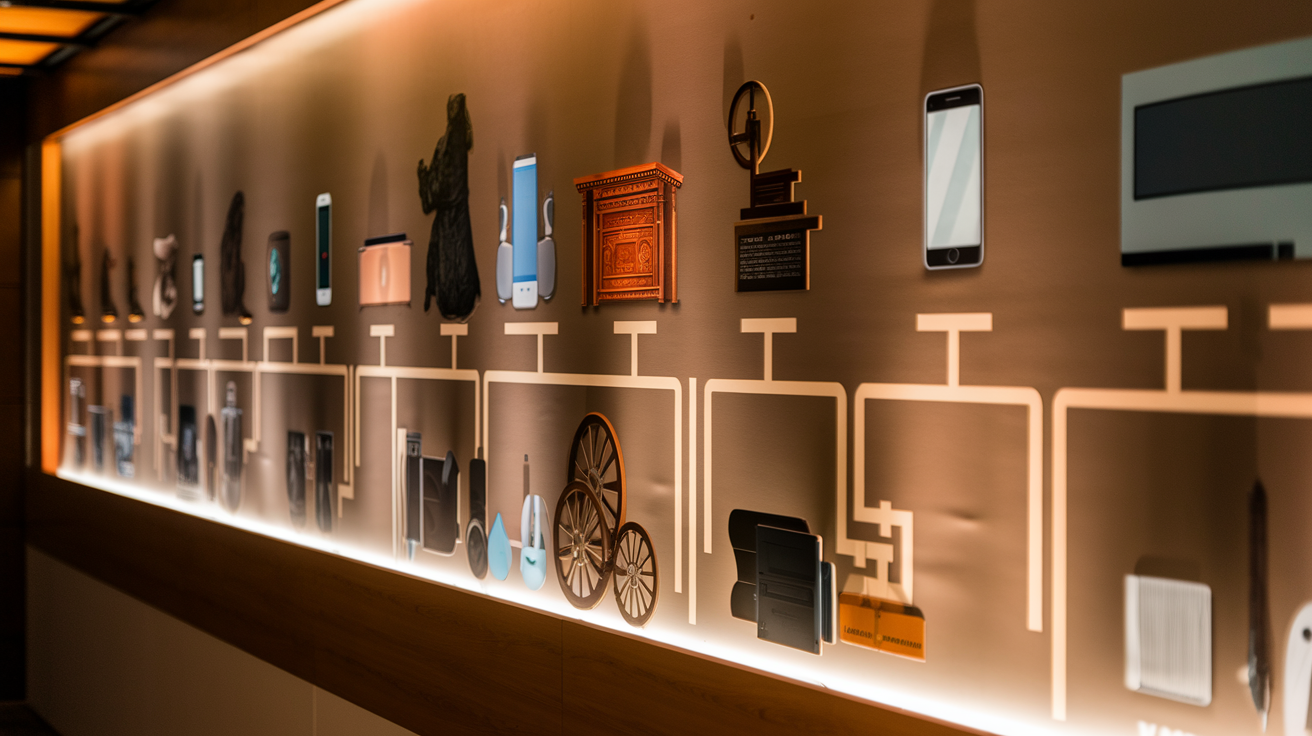
The Historical Evolution of Technology
Prehistoric Innovations and Human Development
Ever wondered when technology actually began? It wasn’t with smartphones or computers. It started with that first stone tool roughly 2.6 million years ago.
Our ancestors weren’t writing code, but they were solving problems. They crafted sharp edges from rocks to cut meat and scrape hides. They mastered fire about 400,000 years ago – talk about a game-changer! Suddenly, nights weren’t so scary, food tasted better, and predators kept their distance.
These weren’t just random discoveries. Each innovation changed how humans thought, lived, and evolved. Our brains grew bigger as we developed more complex tools. Our hands became more precise. We weren’t just adapting to nature anymore – we were adapting nature to us.
The Neolithic Revolution and Social Complexity
Around 12,000 years ago, humans pulled off something incredible – we stopped wandering and started planting.
This agricultural revolution wasn’t just about growing food. It created surpluses, which meant not everyone needed to farm. Some people became craftsmen, traders, or leaders. Specialized tools emerged – plows, pottery, and irrigation systems that transformed muddy fields into food factories.
Cities sprouted up. Writing systems developed to keep track of who owned what. Simple technology timeline:
| Period | Key Technologies |
|---|---|
| Early Neolithic | Stone sickles, grinding stones, simple pottery |
| Late Neolithic | Irrigation, metal tools, wheeled vehicles |
From Industrial Revolution to the Information Age
The relationship between technology and society completely transformed around 1760. Steam engines roared to life. Factories replaced cottages. The speed of change went from crawling to sprinting.
By the late 19th century, electricity was powering homes. The 20th century brought cars, planes, and antibiotics. Each decade compressed more innovation than centuries before.
Then came the digital revolution. The internet didn’t just change how we communicate – it rewired how we think and relate. Today’s smartphones pack more computing power than what sent humans to the moon.
What’s mind-blowing about technology evolution isn’t just what we’ve built, but how each innovation reshapes what it means to be human.
The Impact of Internet Technology on Cognition
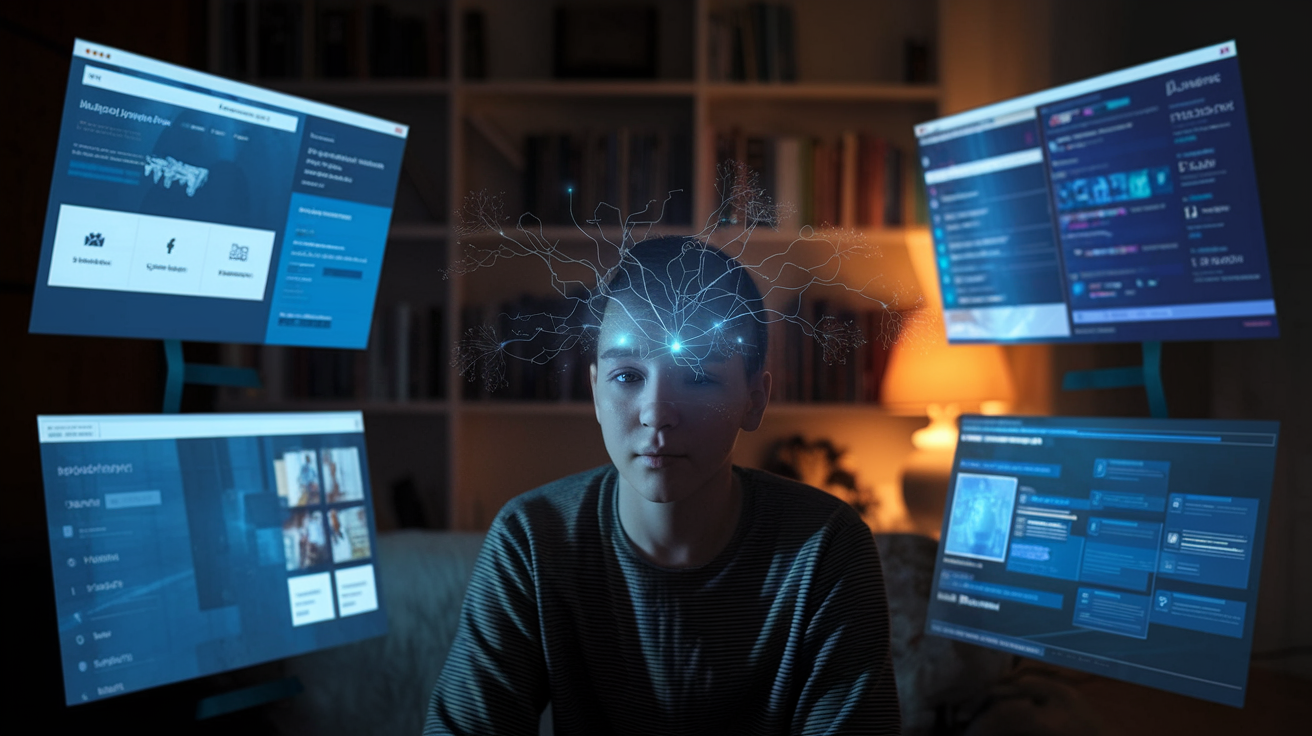
A. Arguments that the Internet “Makes Us Stupid”
Remember when Nicholas Carr asked “Is Google Making Us Stupid?” in his viral 2008 Atlantic article? He wasn’t alone. Many tech critics argue that internet technology is rewiring our brains—and not in a good way.
The constant distractions of notifications, the shallow skimming of content instead of deep reading, the outsourcing of memory to search engines. Critics point to studies showing decreased attention spans and reduced ability to focus on lengthy texts.
Think about it: when was the last time you read a book cover-to-cover without checking your phone? Yeah, me too.
Some researchers suggest our brains are developing “hyperlink thinking”—jumping quickly between ideas but rarely diving deep. We’re trading wisdom for information, depth for breadth.
B. Counter-Arguments and Historical Context
This panic isn’t new. Similar fears emerged with the printing press, radio, and television.
People have always worried about new technology changing how we think. Socrates himself argued that writing would damage memory and wisdom!
Digital technology isn’t destroying cognition—it’s changing it. Our brains adapt to different tools. We might be trading certain cognitive skills for others, developing incredible abilities to process multiple information streams simultaneously.
C. Democratization of Information Access
The internet has done something revolutionary: made information accessible to nearly everyone.
Before digital technology, knowledge was locked away in expensive textbooks, university libraries, and experts’ minds. Now, a farmer in rural Kenya can access MIT lectures or medical research with a smartphone.
This democratization has empowered marginalized communities, enabled self-education, and created opportunities previously unimaginable. The digital divide remains a challenge, but the trend toward greater access continues.
The question isn’t whether technology makes us smarter or dumber—it’s how we harness these tools to enhance human potential while mitigating downsides.
Artificial Intelligence in Modern Society
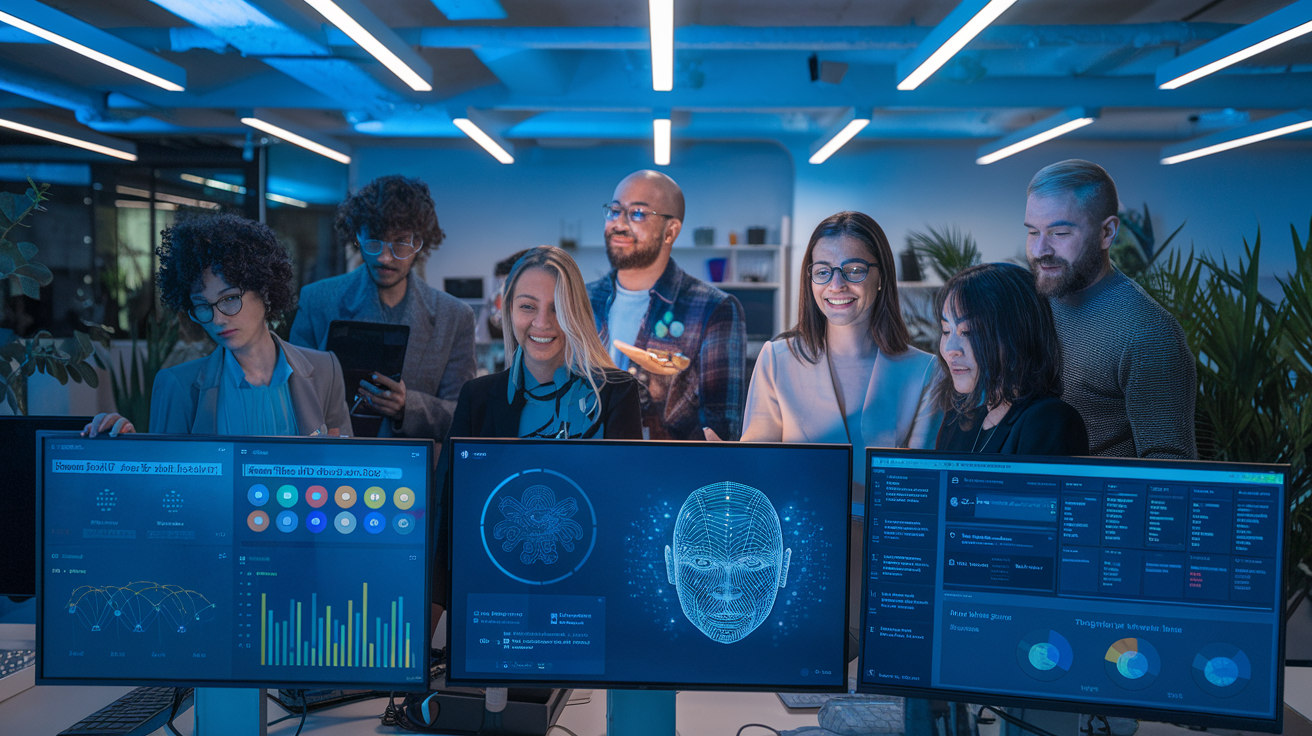
Benefits: Efficiency, Safety, and Simplicity
AI has quietly slipped into our daily routines. Think about it – when was the last time you used Google Maps to navigate or asked Siri a question? That’s AI making your life easier.
Smart homes now adjust temperatures before you walk through the door. Medical AI spots cancer patterns human doctors might miss. Customer service chatbots handle basic questions 24/7.
The real magic? AI handles mundane tasks while we focus on creative thinking. Digital technology impact goes beyond convenience – it’s revolutionizing safety too. Self-driving vehicles promise fewer accidents. AI surveillance systems identify security threats in crowded spaces.
Risks: Privacy Concerns and Systemic Bias
The flip side? Your digital footprint is massive. Every AI interaction leaves data crumbs companies collect. Those personalized recommendations come at a privacy cost.
Then there’s bias. AI systems mirror their creators’ perspectives and training data. Facial recognition works better on white male faces. Lending algorithms sometimes discriminate against minorities. These aren’t minor glitches – they’re ethical implications of technology that need fixing.
Employment Implications and Future Workforce Changes
Jobs are changing, not necessarily disappearing. Repetitive tasks? AI’s got those. But new roles are emerging too.
The hot jobs now? AI trainers, ethics specialists, and human-AI collaboration experts. Workers need different skills – emotional intelligence, critical thinking, and creativity – things AI struggles with.
The technology and society relationship is evolving. Those who adapt thrive. Those who don’t may struggle. The key isn’t fighting AI but finding our unique human advantage alongside it.
Technology’s Broader Societal Implications
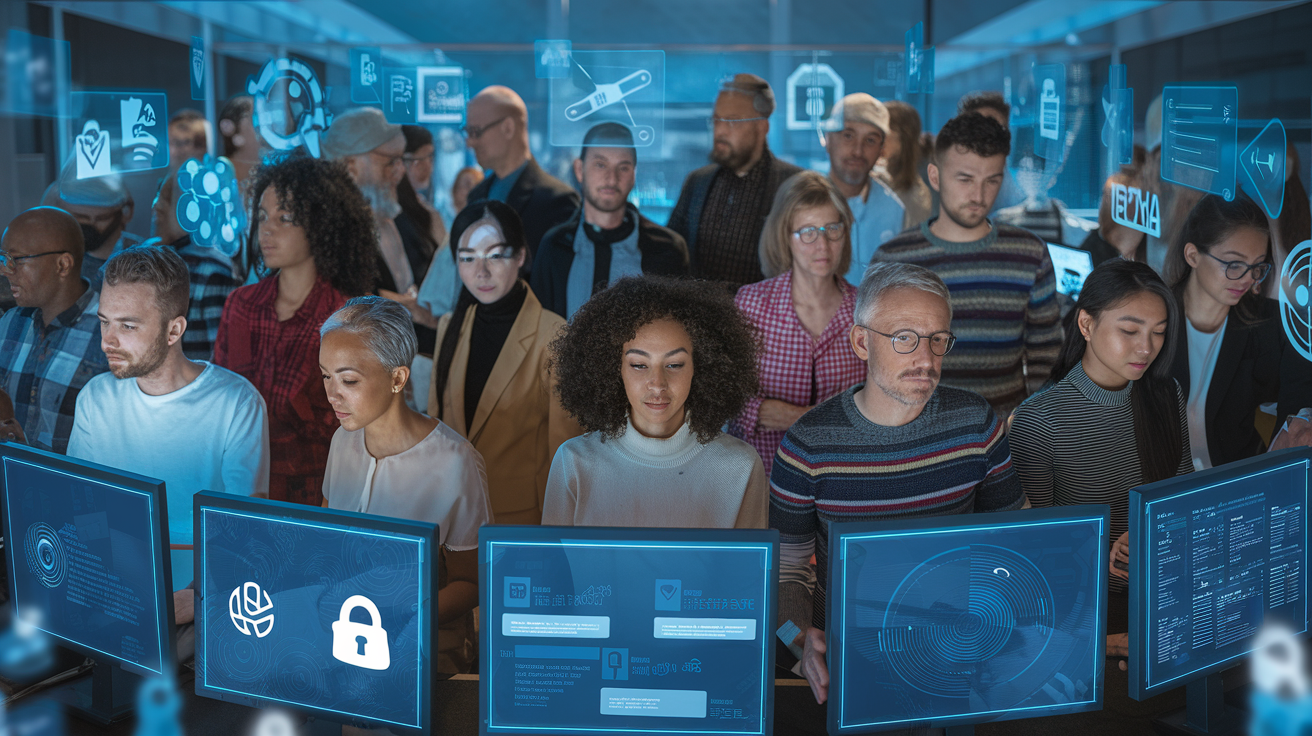
Environmental Challenges and Sustainability
Tech’s growing footprint on our planet isn’t pretty. Every time we upgrade our phones, those old devices often end up in landfills leaching toxic chemicals. Data centers powering our cloud services? They guzzle electricity like there’s no tomorrow.
But here’s the flip side – technology itself might be our best shot at fixing these problems. Smart grids reduce energy waste. AI optimizes transportation routes, cutting emissions. Solar and wind tech gets cheaper and more efficient each year.
Companies are catching on too. Apple now uses recycled materials in their products. Microsoft pledged to be carbon negative by 2030. Not perfect, but it’s progress.
Social Inequality and Digital Divides
The hard truth about our digital world? Not everyone’s invited to the party. About half the global population still lacks reliable internet access. When pandemic hit and schools went online, kids without computers at home fell behind – fast.
The divide runs deeper than just owning gadgets. Digital literacy – knowing how to navigate the online world safely and effectively – splits along economic lines too.
And AI? It’s learning our biases. Facial recognition works better on white faces. Loan algorithms favor certain demographic groups. These aren’t glitches – they’re mirrors reflecting society’s inequalities.
Ethical Considerations in Technological Advancement
Technology moves faster than our ability to set boundaries around it. Social media companies designed platforms that hook our attention while their executives limit screen time for their own kids.
Privacy has become currency in the digital economy. We trade personal data for convenience, often without understanding the deal we’re making. Meanwhile, AI decision-making systems determine who gets jobs, loans, or parole – with little transparency about how these choices get made.
Autonomous weapons raise questions we’ve never faced before: Should algorithms make life-or-death decisions? Who’s responsible when AI systems cause harm? The philosophical implications of technology run deep.
Philosophical Perspectives on Technology

Technological Determinism vs. Social Constructivism
Technology shapes us, or we shape technology? That’s the million-dollar question.
Technological determinists believe our gadgets drive history forward. They say the smartphone wasn’t just invented—it was inevitable, and now it’s completely changed how we connect, work, and think.
On the flip side, social constructivists roll their eyes at this idea. They insist humans are in charge—we create technology based on our values, needs, and sometimes just because we can. The internet didn’t just happen; we built it with specific goals in mind.
The truth? It’s messy. Your iPhone influences your behavior, but you and millions of others also influence how Apple designs the next model.
Human Values in Technological Development
Our values are baked into everything we create. Full stop.
Look at facial recognition tech. Some developers prioritize security and efficiency, while others focus on privacy concerns and potential discrimination. Same technology, different values driving its creation.
Every line of code, every circuit design, every user interface—they all reflect what we care about. When we build social media platforms that maximize engagement through outrage, that says something about what we value (or don’t).
Emerging Ethical Questions in New Technologies
AI is now writing poems, diagnosing diseases, and even deciding who gets a loan. But who’s responsible when it makes a mistake?
We’re grappling with brain-bending questions:
- Should autonomous vehicles prioritize passengers or pedestrians in unavoidable accidents?
- Is it okay for algorithms to predict criminal behavior before a crime occurs?
- When AI creates art, who owns it?
These aren’t just technical puzzles—they’re deeply human ones about fairness, autonomy, and what it means to be human in a world increasingly shaped by our digital creations.

Technology has evolved from primitive stone tools to sophisticated artificial intelligence systems, fundamentally reshaping human civilization along the way. Through this journey, we’ve witnessed how technological developments—from the Neolithic Revolution to the Information Age—have transformed not just our capabilities but also our cognitive processes, social structures, and philosophical outlooks. The Internet and AI present both unprecedented opportunities for democratizing knowledge and serious challenges regarding privacy, employment, and ethical considerations.
As we continue to navigate the complex relationship between humanity and technology, we must approach technological advancement with both enthusiasm and caution. The future will require thoughtful consideration of how emerging technologies align with human values and societal needs. By understanding technology’s historical context and broader implications, we can work toward harnessing its potential while mitigating its risks, ensuring that technology serves as a tool for human progress rather than a force that controls our destiny.
Thank you reading my blog. For more such content follow our page : urtechman.com
